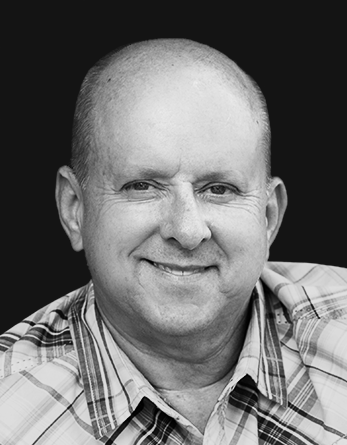
Lance Witt, who served twenty years as a senior pastor and six years as an executive/teaching pastor at Saddleback Church, shares insights on how pastors can prevent burnout and not make some of the same mistakes he feels he made. After leaving Saddleback, Lance started a ministry called Replenish to help pastors care for themselves as they do the work of ministry. He is now dedicated to helping leaders live and lead from a healthy soul.
Tell us about your role at Saddleback Church.
I went to Saddleback in 2000, and Rick Warren wrote The Purpose Driven Life in 2002. As part of its release, we decided to turn it into a campaign in our church and around the country. My job as the pastor of discipleship was to lead the campaign for Saddleback. I worked closely with Rick on developing the curriculum and deciding how we would structure it with small groups. At the time, we had five or six hundred small groups. When we did 40 Days of Purpose, a study guide for The Purpose Driven Life, we had 2,100 small groups. So it was a huge growth for us. It was a very exciting time and an insanely crazy time.
How did you handle the stress that came with your job?
I really didn’t handle it well, and it’s part of that journey that resulted ultimately in me doing Replenish. Because like a lot of pastors, I grew up with an “always be available” mentality, without many boundaries or limits.
When I got to Saddleback, the pace was insanely faster, and the demands were so much more. I sometimes look back at that season and tell people that it was both the most intoxicating and toxic season of my life. Some of that was because of the pace and the demands, but some of it was also because I didn’t lead myself very well. I was definitely on a path to burnout. I find that it doesn’t matter whether you’re in a big church or a small church, a rural church or an urban church, you can burn out no matter what your situation.
How did your burnout affect the people in your life?
I always thought burnout was about all the externals around you. If you could just manage your environment better, you wouldn’t burn out. But I learned that as insidious as the external things are, the internal things are more insidious. The broken stuff in me has more to do with my burnout and the path I’m on than anything else. It played out the most during those years at Saddleback—not with my fellow staff members but at home.
My wife and kids felt the impact of my out-of-control pace. I didn’t have much time for family, and I remember sometimes my wife and I would discuss how I was never there. Even when I was there, I wasn’t really there. I was always preoccupied.
I always used the excuse that this was just for a season. Then, one day my wife said, “There’s always a reason or a season why you can’t be who you’re supposed to be.” I had to get to the place where I really owned my spiritual health. Nobody else was responsible. I was not a victim of my circumstances. I was responsible, and it was my job, with the Holy Spirit’s help, to lead myself well.
What complexities exist in today’s church that can contribute to burnout?
Ministry today might be as complex as it’s ever been in the history of the world. Obviously there have been generations where persecution has been hotter and more intense, but there are more complexities for a pastor today. The amount of things that put pressure on pastors and drain them is greater than ever before. A generation ago, a pastor was the only voice in his community. But now a pastor’s people listen online to the best communicators anywhere in the country, so there’s pressure for a pastor to deliver. There’s also pressure for a pastor to be a strong organizational leader, be great with numbers, communicate effectively, and counsel people with problems.
Pastors also have not always been good about leading themselves. We’ve thought, “I’m supposed to be available 24/7. I’m supposed to be the one who doesn’t have any needs myself.” I don’t think we’ve done a great job of understanding our own needs, our own humanity, so we’ve often tried to live beyond our limits. All of those things together are a recipe for burnout for a lot of leaders and pastors.
What’s the difference between sacrificial service and an unhealthy approach to ministry?
There is a difference between appropriate healthy sacrifice and an unhealthy approach to ministry that is often driven out of “people pleasing” or need for approval. Bill Hybels, senior pastor of Willow Creek Community Church, said that in ministry you’ve got to be able to discern the difference between “good hard” and “destructive hard.” Good hard is healthy sacrifice. Good hard is, “Ministry is messy, but I’m there and I want to be available as a pastor.”
Destructive hard does lead to burnout. Pastors start sacrificing things that Jesus never asked them to sacrifice. They start acting as though they don’t have limits. I find myself regularly reminding pastors that before God made them pastors, He made them people. And you have the same needs as anybody else. You have to learn how to say no, how to have boundaries, how to take care of yourself. If you don’t, in the end you’re not going to do much good for your church or ministry if you burn out.
What questions can a pastor ask himself to determine whether or not his self-sacrifice is driven by unhealthy motivations?
Pastors can ask questions like, “What’s the state of my soul?” “Am I drained?” “Am I actually leading others while running on empty myself?” “Am I more irritable?” Often those are signs of unhealthy motivation.
I think the biggest question pastors need to ask is, “Why am I so driven? What’s really driving me?” When you always say yes, when you’re always available, when you’re going faster and your pace is beyond what it should be, learn to ask that question. We can always cloak it in God talk so that it sounds spiritual, but the truth is that personal ambition or an unhealthy need for significance is what really drives us. I think asking the “why” question puts pastors on a path to be more emotionally healthy.
What are some practical ways that pastors can replenish themselves after they’ve spent time ministering to others?
Pastors need to protect their own personal walk with God. Ministry is the box, the delivery system, but Jesus is the gift. We have to make sure we stay connected to the gift and not make it all about the box. I remind pastors all the time that ministry is not their life. Jesus is their life. Pastors need to have life outside of ministry. One exercise I do with pastors is called the Replenishment Cycle. I’ll have pastors write down the five things that put life in their tank and how often they ideally need them. Then I have them circle the one that’s absolutely the most important for keeping their tank filled.
The gravitational pull toward busyness in ministry is so great, but observing the Sabbath is something pastors need to start building into the rhythm of their lives. Sabbath to me is different than a day off. Most pastors I know take a day off, and they catch up on all the stuff they couldn’t get done during the week because they were doing ministry. But Sabbath is about stopping, and resting, and delighting, and putting things in your life that fill you up. It’s about a slower time of worship and being with God. I think it’s part of acknowledging our limits; God gives us permission to stop, even though there’s still more that could be done.
What are some helpful strategies for encouraging laypeople to shift their thinking that the pastor is the person who does the work of the ministry?
I think you’ve got to start with biblical teaching. Know Ephesians 4. It is the pastor’s job to equip. Ministry, no matter what size the church, is a team sport. The pastor doesn’t have all the gifts. He has limited gifts. He has limited time, limited focus, limited boundaries. If he’s the one who’s always doing the work of the ministry, he will become the bottleneck of the church.
I think another piece of this is removing the chasm between those who are called to ministry and those who are laypeople. We all have a calling. And a pastor’s calling is no better because he stands up front on the platform. The work in the nursery, on the missions committee, etc., is just as important as a pastor’s calling. Pastors have to look people in the eye and challenge them to step up and serve. Pastors come up with excuses for people, like, “Oh well, I’m sure they’re busy.” That may be true, but they can still challenge busy people by saying, “You need to be doing something for the kingdom. Let’s talk about what that might look like. How can you get involved? What’s a good first step for you to take?”
How can a pastor recruit volunteers?
First, pastors have to connect the what to the why. People have to be inspired. People only have so much time, and if they say yes to your church’s volunteer opportunity, they’re saying no to something else. They need to have a compelling, inspiring reason why.
Second, help people clearly understand what you’re asking them to do. If you’re recruiting them to be a small-group leader, what’s the job of a small-group leader? Can you articulate that? Give people a simple, easy, low-cost opportunity to get involved. Give people a simple step. Then give them the resources and support they need.
What are some of the most successful tactics you’ve used to recruit volunteers?
Pastors need to ask themselves, “What are the barriers that keep people from jumping in to serve?” At Saddleback we discovered the word “leader” itself was a barrier to some people who didn’t consider themselves leaders. We actually changed some of our terminology: “Instead of considering yourself the ‘leader’ of this small group, could you just host a group in your home and facilitate?” Just that simple language change made a difference.
Also, make the training simple and easy. People don’t have time to spend four Tuesday nights training for a volunteer position. At Saddleback, we did Just In Time training, giving people just enough to get started. Put some of your training online, or give volunteers a handout. Make it simple for them.
More resources to prevent burnout
In addition to the excellent help that Lance shared in his interview, you might be interested in reading the following CareLeader.org articles:
4 Reasons You Need a Break by Lane Sebring
How to Cure Workaholism by Dr. David Murray
3 Ways to Maintain Sanity in Ministry by Dr. Jeff Forrey


